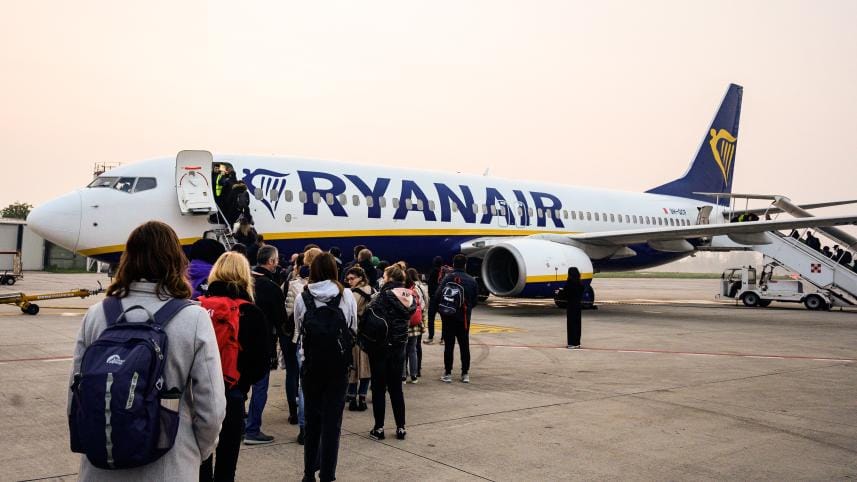Resurgent airlines soar towards passenger, revenue records

Airlines will fly almost five billion passengers in 2024 and revenues will near $1 trillion, both record highs, trade body IATA said on Monday as the industry roars back after the pandemic.
The International Air Transport Association also said it expected the world's airlines to post $30 billion in net earnings this year, up from its previous estimate of $25.7 billion.
However, total expenses are expected to hit a record high this year, climbing 9.4 percent to $936 billion, IATA announced at its annual general meeting in Dubai.
Fossil fuel-burning airlines are also under pressure to contribute to the fight against climate change and make progress towards a pledge to reach "net zero" carbon emissions by 2050.
This year's expected $30 billion profit "is a great achievement considering the recent deep pandemic losses", IATA director general Willie Walsh told the body's annual general meeting in Dubai.
"Without a doubt, aviation is vital to the ambitions and prosperity of individuals and economies. Strengthening airline profitability and growing financial resilience is important," he added.
The Covid-19 pandemic plunged the aviation industry into crisis, grounding fleets and costing thousands of jobs. IATA put the losses at $183 billion between 2020 and 2022.
But despite the expected bounce-back to record passengers and revenues of $996 billion this year, some clouds remain.
As well as the record expenses, the return on invested capital is estimated at 5.7 percent in 2024, about 3.4 percentage points below the average cost of capital.
The net profit margin is just 3.1 percent, amounting to about $6 per passenger -- a slight improvement on 2023, which is estimated at $27.4 billion net profit with a 3.0 percent margin.
"Earning just $6.14 per passenger is an indication of just how thin our profits are -- barely enough for a coffee in many parts of the world," Walsh said.
Airlines are facing a sharp rise in costs due to shortages of parts and labour as well as challenges related to climate change, including flooded runways and forest fires.
In April Dubai's airport, the world's busiest for international passengers, was closed by severe flooding that left standing water on the runway and forced the cancellation of more than 2,000 flights.
The extreme rainfall in the desert United Arab Emirates was likely exacerbated by manmade global warming, according to an international grouping of scientists that examines extreme weather events.
Air transport currently accounts for less than three percent of global CO2 emissions, but is often in the firing line because it serves a minority of the world's population.
Production of sustainable aviation fuel (SAF), taken from renewable sources, will triple this year to 1.9 billion litres, or 1.5 million tonnes, IATA said on Sunday.
But SAF will account for just 0.53 percent of the industry's fuel needs in 2024, the body added.
It is expected to provide 65 percent of aviation's "net zero" mitigation by 2050, with the balance expected to come from greater efficiencies, new technologies and carbon offsets.
After Doha in 2022, Istanbul in 2023 and Dubai this year, IATA's 2025 AGM will be held in New Delhi -- the centre of an aviation boom, including record-breaking aircraft orders by Indian carriers.



 For all latest news, follow The Daily Star's Google News channel.
For all latest news, follow The Daily Star's Google News channel. 
Comments